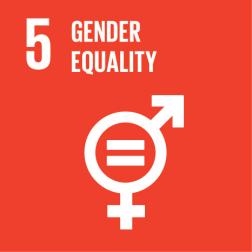The context
Between 2013 and 2016, more than 40 young girls aged from 8 months to 12 years were abducted and raped during the night. The same modus operandi was observed: after being abducted by one or more men, the victim was raped before being abandoned in the neighbouring fields. Most of the little girls were taken to Panzi hospital, run by Dr Denis Mukwege, to undergo reconstructive surgery.
These attacks were initially believed to be isolated events and treated as such by the local judicial authorities. Dozens of Kavumu families waited in vain for justice. It was not until March 2016, once TRIAL International had joined the Task Force for International Criminal Justice[1], that the Congolese government acknowledged that these acts could constitute crimes against humanity and made the issue a priority.
The solution
In collaboration with Panzi hospital, the NGO Physicians for Human Rights and other stakeholders from the Task Force, TRIAL International fought for the Kavumu case to go to trial. To do this, it helped Congolese lawyers to collect evidence (including medical and legal evidence and the testimony of the victims) and prepare a solid legal strategy. The aim was to show that the attacks were the result of an organised political project and not isolated criminal acts.
In September 2017, the military prosecutor in Bukavu charged 18 people with acts of rape constituting crimes against humanity and other offences. A provincial deputy was one of the defendants - a very rare event in DRC, where political power is often synonymous with impunity.
Before and during the trial, particular attention was paid to the safety of the victims and their families, partly due to their very young age, and partly due to the ongoing threat from militia around Kavumu. As an example, TRIAL International facilitated the organisation of filmed video questioning for the underage victims - a first for eastern DRC. This testimony was then sent to the prosecutor, avoiding the need for the survivors to repeat their story and thus helping to minimise the risks of retraumatisation.
The result
 On 13 December 2017, after 17 days of very tense hearings, Bukavu court issued its verdict: 11 men, including the deputy, were convicted of crimes against humanity. They were all sentenced to life imprisonment and the victims were awarded compensation of between 5,000 and 15,000 USD. On 26 July 2018, the Military High Court in DRC confirmed this verdict.
On 13 December 2017, after 17 days of very tense hearings, Bukavu court issued its verdict: 11 men, including the deputy, were convicted of crimes against humanity. They were all sentenced to life imprisonment and the victims were awarded compensation of between 5,000 and 15,000 USD. On 26 July 2018, the Military High Court in DRC confirmed this verdict.
The importance of the Kavumu trial goes well beyond the victims and their families", explained a manager of the Great Lakes desk for TRIAL International. "It shook the silence and legal inertia surrounding sexual violence in South Kivu. This decision is a historic precedent that paves the way for many other cases
Source(s)
- Pictures © TRIAL International
- Read the press dossier on the Kavumu case
- Watch the testimony of a father and a mother of the raped little girls from Kavumu (French)
Partner(s)
- TRIAL International
[1] The Task Force for International Criminal Justice is an informal network of international stakeholders who work together to support the work of the Congolese military authorities in investigating and indicting the perpetrators of mass crimes in South Kivu.



